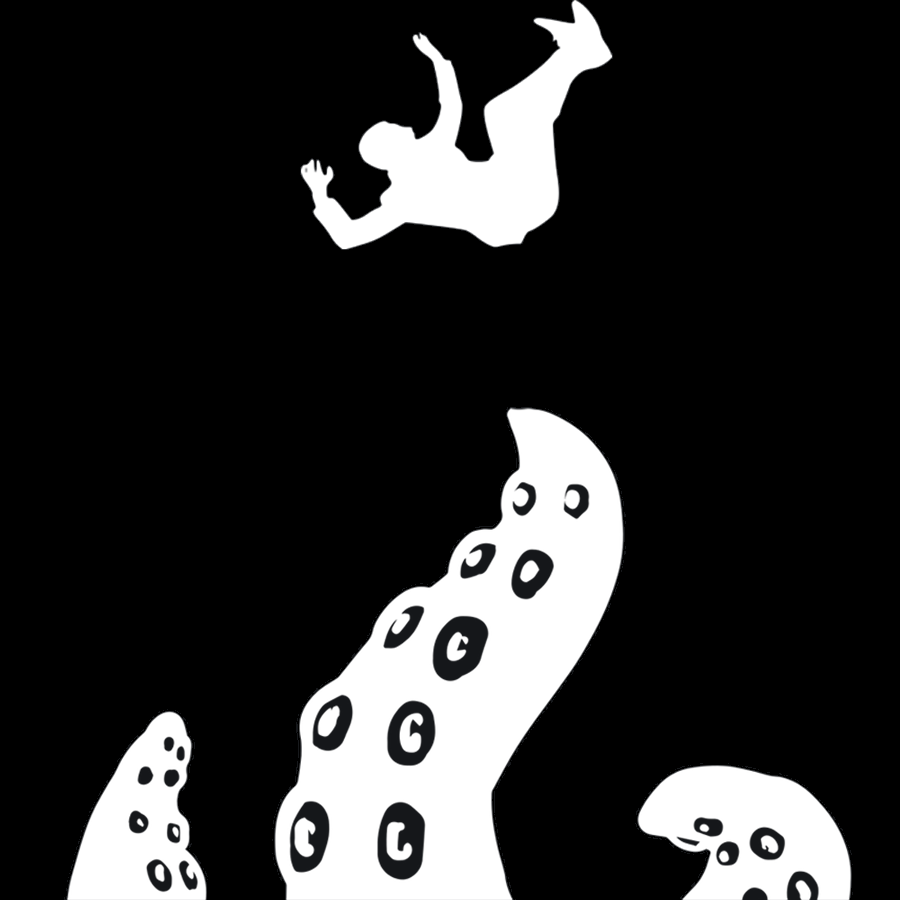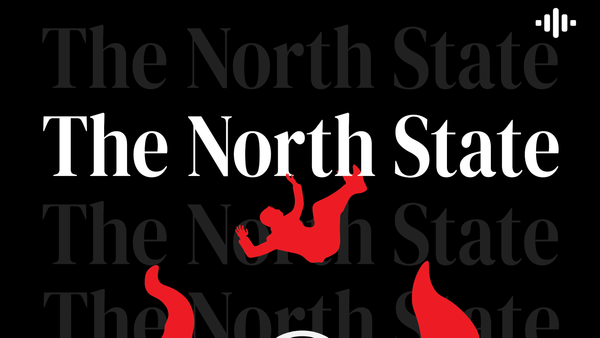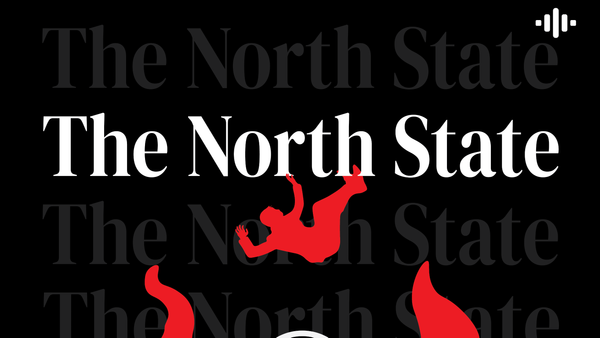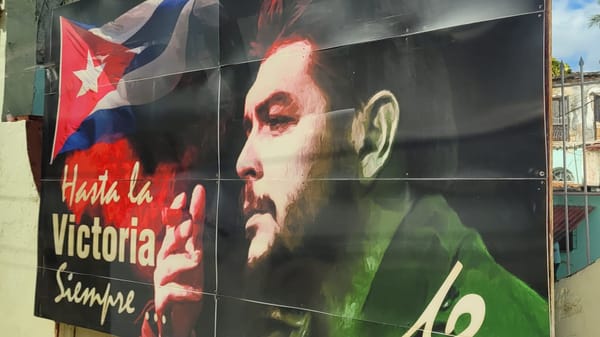The Temptation of Despair
Unrelenting grief and the effects of its battering
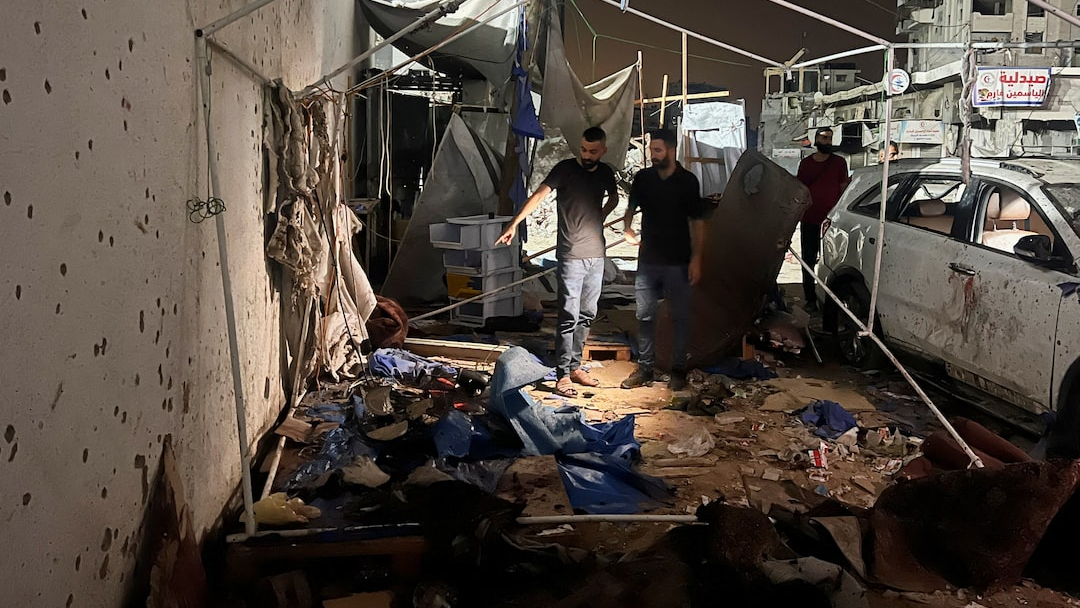
Days before an expected invasion and occupation by Israel, Al Jazeera Arabic now has no journalists in Gaza City. Israel targeted a news media tent, killing five journalists inside. Anas Al-Sharif, the target of an Israeli smear campaign, was among those targeted and killed. There had been calls to protect Al-Sharif after it became clear that Israel had planned to end his life. Those calls went unheeded. Al-Sharif and his colleagues are now dead. They join over two-hundred reporters in Israel's mass grave.
"If these words reach you," Anas' posthumous words read on his X account. "Know that Israel has succeeded in killing me and silencing my voice." His final words will stick with me until I, too, meet my end. His prose reaches heights most journalists only hope to achieve in their life. Even in death, Anas' work contains the passion, pain and unrelenting spirit that drove his work. His words form a hand. One that comes close to forming a fist, but chooses instead to cradle his country and embrace his loved ones. It also casts a grimly accusatory finger at all those who allowed this 21st-century Holocaust to happen.
I have lived through pain in all its details, tasted suffering and loss many times, yet I never once hesitated to convey the truth as it is, without distortion or falsification—so that Allah may bear witness against those who stayed silent, those who accepted our killing, those who choked our breath, and whose hearts were unmoved by the scattered remains of our children and women, doing nothing to stop the massacre that our people have faced for more than a year and a half.
I would do anything to shake Anas' hand. It will never happen. More than that, collaborators that allowed this to happen won't even give Anas the dignity of brushing it away. They pretend it is invisible to them.
Every horror we've seen has been while comfortably seated on our couches or in our beds. We lay, curled up, motionless and dead-eyed as we scroll past miles upon miles of sharp gray rubble, emaciated bodies and butchered children. For us, all this imagery can be shut out at a moment's notice. But not for every Palestinian. The journalist's role, especially in Palestine, is to capture this in the hopes that these images will spur action. Outrage. Above all... intervention.
These images bounce off the leaders of imperialist core like rain on a priceless jacket. To them, it is as imperceptible as it is constant. As blood drips from the skies in a steady flow, their only care is to kick those of us who are sick of drowning in the rising crimson tide.
In the UK, hundreds of protestors are arrested for displaying support for Palestine Action, over a hundred of which were over the age of 70. The government deemed the group as dangerous as Al-Qaeda. Canada has authorized millions of dollars in arms exports to Israel despite saying otherwise. The US is implementing a national crackdown on Palestine activism.
Journalism's Silence
Perhaps the killing of Anas and his Al Jazeera comrades will spur further action, if even nominal and ultimately meaningless. Ever since France announced they would recognize a Palestinian state, other countries have followed suit, even if their conditions, like demilitarizing and dictating terms of elections, are completely unfeasible.
But journalist outlets are staying silent.
"If I die, I die steadfast upon my principles."
Above all else, this line in Anas' posthumous words rang in my head. Many journalists like Anas have died upon their principles. Hundreds of them. All at the hands of a genocidal state that sees the truth as the enemy. Their only crime was showing the world what their occupiers are doing. How deep their capacity for cruelty goes.
In June, Reporters Without Borders published a statement condemning Israel for restricting access to Gaza and for killing journalists. The Globe and Mail was the only Canadian outlet that added its name. At time of writing, no major paper has released an editorial condemning this latest attack. Occasionally, and only now that Israel has been undeniably shown to facilitate famine in Gaza, there have been condemnations. But it comes after a culture of silence has been cultivated. Orientalism dominates the outlook of reporting on Palestine.
Meanwhile, general attacks on journalists have mounted. US police are using force against journalists. Large news corporations are softening coverage to please the state. This is all intertwined.
All journalists have been harmed by this genocide. Our institutions have shown their apathy. West Asian and Arab journalists across the world have been shown how little their lives matter. Press jackets and prestige means nothing against the bombs and bullets of the powerful. When reporters' lives are put up against cultural hegemony, capitalist profits and settler-colonial ambitions, they're scattered to the wind. At best, they'll receive sombre bowing of the head before a return to business as usual.
Our institutions and powerful entities have not failed Palestine. To fail means one has attempted a goal and not succeeded. It's clear that governments and the corporations do not have a goal to stop the genocide. No, the truth is much more devastating. We, the people, have failed the journalists of Gaza.
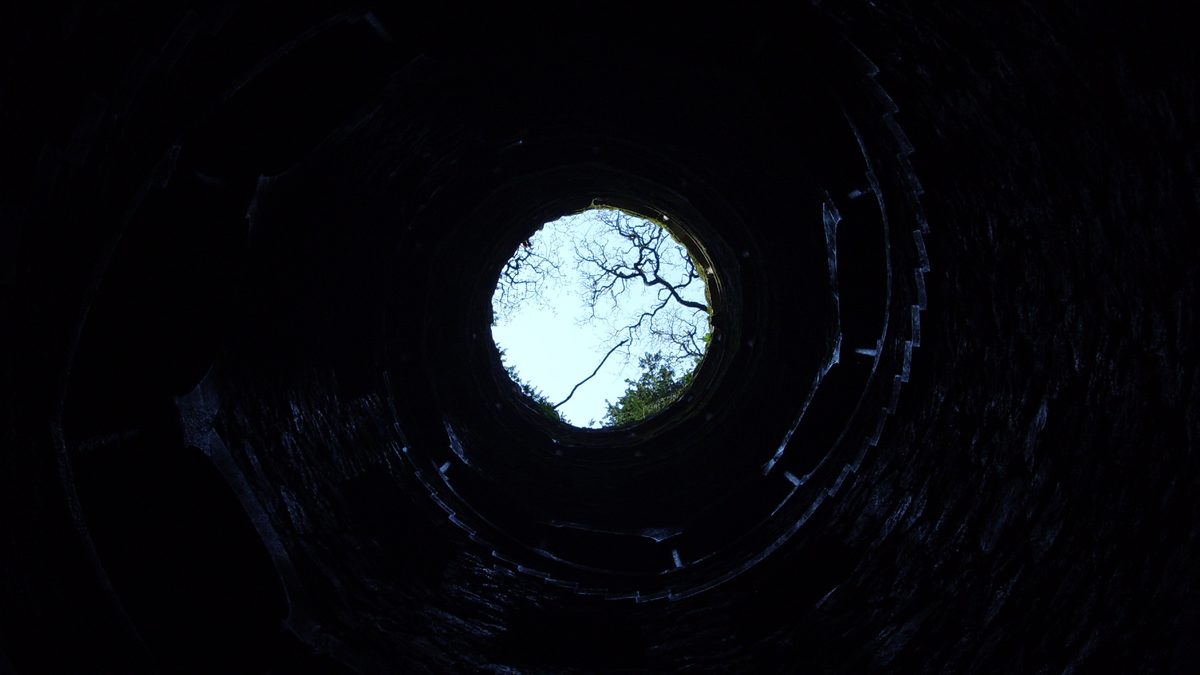
Despair's Mask
Despair has been deeply woven into the fabric of our lives. We wake to a new and ever changing onslaught of intangible horrors. Warning signs of multiple ongoing crises as distressing as they are distant. People who understand have nothing to say that you haven't said to yourself. People who don't have nothing to say at all. There may have been a time that enraged you. Now, you don't know which detaches you more, if you ever did.
But if you're like me, a thought ceaselessly scratches at the window of your mind throughout it all. Sage knowledge keeps worming its way in, no matter how many bricks you lay in the sill. "Despair is easy," it whispers. "The only guarantee that there is no hope, is if you give up."
Life is hard enough. Who would blame you for taking one more easy choice? Many people pretend as though caring isn't even a choice they were presented before rejecting it. Caring only troubles the mind. Enough of them are planted and nurtured every day. Giving up may seem like the logical choice, even practical. But it isn't. Grief, depression, despair, these are tools– implanted into the mind by your material conditions. These conditions perpetuate the system and the horrors it produces.
Frantz Fanon wrote extensively about the effect colonization has on the mind of the colonized in The Wretched of The Earth. In one passage focusing on how African politicians should approach change to the colonized masses, he writes "the demoralization buried deep within the mind by colonization is still very much alive." (p.135) But no matter our relationship to colonization, one must keep in mind that the dynamics of settler-colonialism have been baked into us from an early age.
Settlers like me, raised in countries like Canada, US, South Africa, Australia etc. are taught that this land is rightfully ours. Indigenous people are, at best, an opinion to be considered, while the result is ultimately decided on independent of their input. Indigenous people are led to believe their ways are inferior and backward. They must play the game of the colonizer to be treated seriously. Marginalized immigrants are incentivized to come to these prosperous lands in order make money, assimilate and practice gratitude above all else. Each of us contain multitudes of personalities, no matter our origin, they are all framed within the dynamic of colonized and colonizer.
Yes, despair is easy. But the responsibility of those with power is to wield that power effectively. Make no mistake, Indigenous people are the primary victims of colonization. This is not up for debate. But their dehumanization requires a hollowing out of the settler. A majority of Israelis believe the military shouldn't be punished for raping prisoners. The vast majority of Israelis want to expel Palestinians from Gaza. Those surveyed who think every man, woman and child should be killed reaches 47 per cent. This is not because Israelis are inherently vicious and sadistic. It's because this is what violent colonialism requires: a complete destruction of humanity. Look no further than an Ontario op-ed published in an 1864 coldly weighing the financial costs and benefits of murdering Indigenous people through war or drink versus converting them to Christianity. Extermination requires the exterminators to become cruel, sadistic and above all, apathetic to human suffering. Those who abhor colonialism's bloody machinations need only refuse confrontation in order to allow its continuation. It is this refusal, hiding in the shawl of exhaustion, that exposes the selfish root of despair. I am tempted by despair every day.
But to succumb is total. So I refuse. I refuse to become apathetic. I refuse to be hopeless. Despair is the void that stares into your soul, beckoning you to become as monstrous as necessary for its work to continue. Despair is apathy disguised as self-care. It is dehumanization in an emotionally tempting visage. It is the first step of tacit approval. It is a deeply human emotion that works against itself. Anas Al-Sharif knew this. In his final words, he explained what he wanted us to do after his death:
I entrust you with Palestine—the jewel in the crown of the Muslim world, the heartbeat of every free person in this world. I entrust you with its people, with its wronged and innocent children who never had the time to dream or live in safety and peace. Their pure bodies were crushed under thousands of tons of Israeli bombs and missiles, torn apart and scattered across the walls.
Anas refused to give into despair. His work, his family, his people and his faith kept that flame alight into his final moments. He is not alone. Palestinians continue to be slaughtered while the world stands by. Historically, they share a grim experience. Jews of Europe, Armenians, Herero and Nama people, Congolese, Vietnamese, Haitians, Xhosa, Indigenous peoples of North and South America, slaves captured from Africa and countless others similarly know their pain. All were victims of settler-colonialism; Blood profits and land seizure disguised as civilization.
Throughout it all, there has been resistance in countless forms. Any life that it saved was important. Any life saved by the collective outcry and action of the people is a thorn in the side of colonialism. Death by a thousand cuts has been the ruin of the strongest empires in history. It is the only path to ending suffering. We may have failed Anas, Palestinians and victims of genocide the world over, but our goal is not to embrace that failure, it's to change it.
Rest in peace Anas. Rest in peace to all those murdered for reporting the truth. You have shown us where to go next. We will not let despair win.
